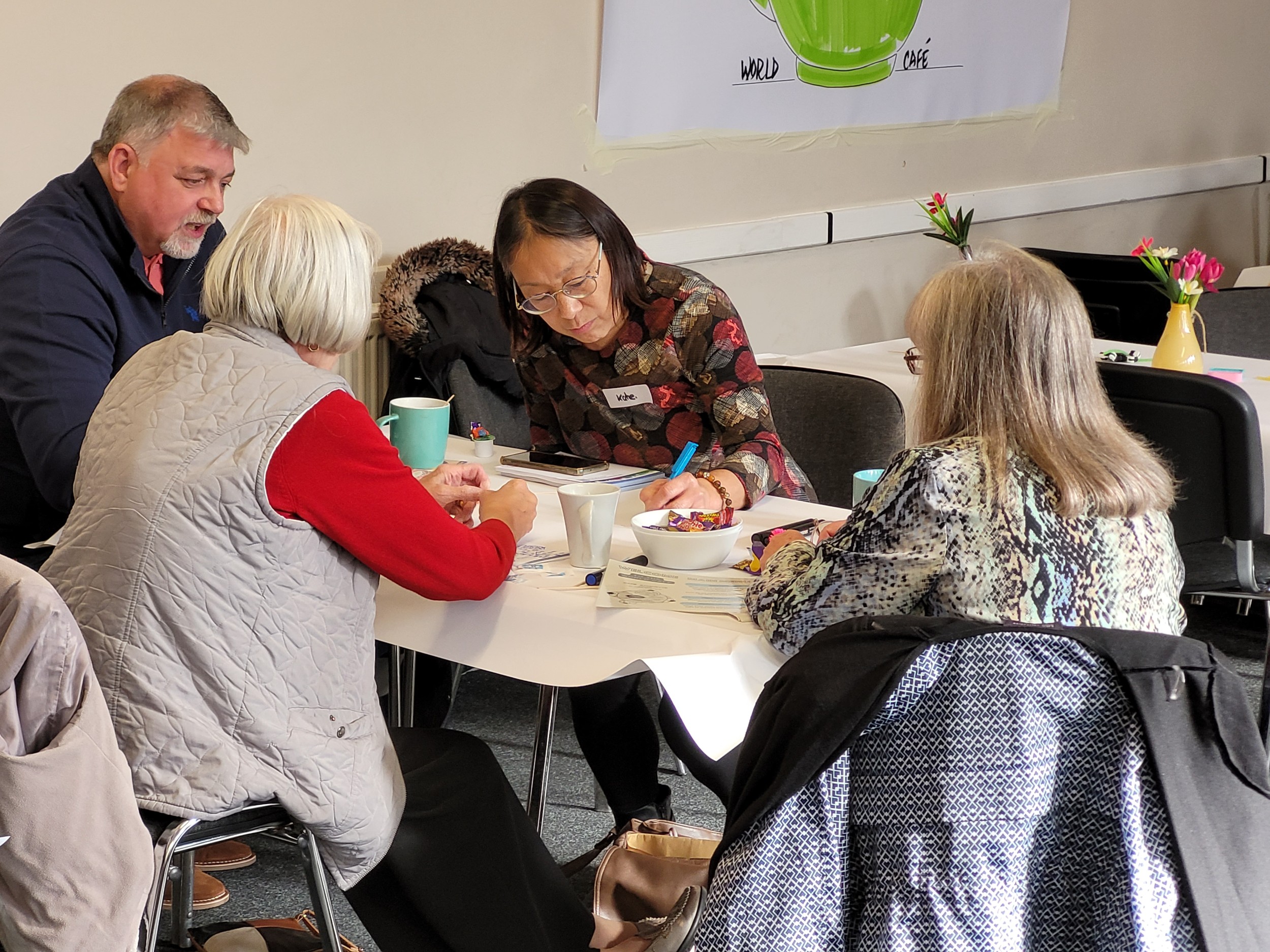The Black Country ICS will take a lead role to redress health inequalities across health and social care in the Black Country.
Our system has already made significant progress in the last year in our work to redress health inequalities and promote health equity to improve access, outcomes, and experience. Our approach has been, and will continue to be multi-faceted and aim to take practical steps to address health inequalities, but also take the required action to improve the capacity and capability of our system in this area.
We will continue to drive forward the Health Inequalities Improvement Programme during 2022/2023 by building on the successes of the last 12 months and further developing our partnership and collaborative work. We continue to benefit from a dedicated resource (the Academy, and the Transformation and Partnerships Team) to support the development of Health Inequalities, Prevention and Population Health Management plans whilst also upskilling and developing capability of staff from across the system.
There are clear arrangements for board level leadership of the health inequalities agenda across our system with executive level leads identified within each organisation. The Integrated Care Board (ICB) has a non-executive director for health inequalities and a Chief Equality and Innovation Officer.
This will be underpinned by the following principles:
- Having a thorough understanding of the extent/scale of inequalities –recognising the deprivation factor and the richness of our diversity and collectively demonstrating a willingness to go further in understanding the uniqueness of our local Places –and understanding these as opportunities or catalysts for improvement.
- There is a significant gap between our population and the national average for both life expectancy and healthy life expectancy.
- Almost half of our population live in the most deprived quintiles of the indices for multiple deprivation
- Just over a quarter of our population are from Black and Ethnic Minority communities, whilst we celebrate our richness in diversity, there is a correlation between ethnicity, deprivation, and mortality from preventable illnesses in our ethnic minority population.
- Unemployment rates of our population are significantly higher than national averages, especially for mixed ethnic group and Pakistani/Bangladeshi populations.
- There are high numbers of our children living in poverty (17.7% live in workless households and 28% in relative low-income families).
- There are approximately 1,400 deaths per year in people aged 18-74 with serious mental illness. The life expectancy gap is 17 years.
- Recognising the knowledge and expertise of our partners, particularly Local Authorities and Voluntary Sector, and developing a governance infrastructure that reflects that.
- Addressing health inequalities as a golden thread across all our strategic workstreams, with focused capacity to drive/coordinate the work through our Health Inequalities Improvement Programme.
- Acknowledging the primacy of ‘place’, not only in terms of delivery but in terms of connectivity with our communities by establishing a co-production process at ‘place’ that suitably represents and advocates for our local communities.
- Developing our governance infrastructure to embed these principles at system and place level.
The purpose of the Black Country clinical strategy is to set out the clinical priority areas that have been identified for prioritised transformation in order to help reduce the health inequalities present within the system. The clinical strategy outlines the local population demographic, prioritisation processes, how we will operate to deliver change, quality assurance processes and importantly, the values with which we operate.
The following priority actions have been identified, along with milestones, that will enable us to achieve our strategic plan objectives:
Health Equity
- We are working to embed HEAT as our framework for evaluating service delivery/improvement proposals, and this will be a continuous process as part of the Integrated Care Boards delivery of Public Sector Equality Duty.
- Health Equity Framework and Policy will be developed.
Health Inequalities
- Continued monitoring and evaluation of the Health Inequalities Improvement Programme funded projects.
- Continue to allocate resource based on our Health Inequalities Funding Formula.
- Continue to drive delivery against the CORE 20+5 priorities including within that framework a specific focus on diabetes treatment within our ethnic minority communities.
Inclusive Restoration
- Work collaboratively with Strategic Workstream leads to ensure inclusivity is achieved; for example, for cancer pathways support the early diagnosis and screening programmes, and support for BAME cancer patients.
Mitigate against digital exclusion
- A partnership approach through the ICS Digital Inequalities Sub-Group, which reports into the ICS Digital Board, is working on a programme split into four areas:
- access to kit
- access to connectivity
- access to skills
- access to information.
- We recently launched our Black Country Connected. This programme aims to reduce digital inequalities by donating kit and connectivity and providing support to people within the Black Country who otherwise do not have access.
- We work in partnership with our local authorities who already do a significant amount of work in this area, West Midlands colleagues who we have worked with to develop a basic skills course, local voluntary groups and community groups who will help us deliver our programme, and University of Birmingham who are supporting us in evaluating the programme and using our work to inform their research.
Ensure datasets are timely and complete
- We have developed a data completeness dashboard that will continue to be developed to ensure we have a clear view of all protected characteristic data collected across the ICB and that this data is accurate and reported through in a timely manner.
Prevention
- Accelerate preventative programmes which proactively engage those at greatest risk of poor health outcomes, working collaboratively with Strategic Workstream Leads.
Leadership and accountability
- Building on the established leadership arrangements, we will establish a health Inequalities Leadership Network.
- Work with system partners to further develop the Health Inequalities Improvement Programme.
- Evaluate and consider roll-out of the Inclusive Leadership Programme, currently being piloted.
Achieving equity is viewed as mission critical and our system will continue to look at our operational systems, practices, and policies to assess where inequities are produced and where equity can be proactively created.



